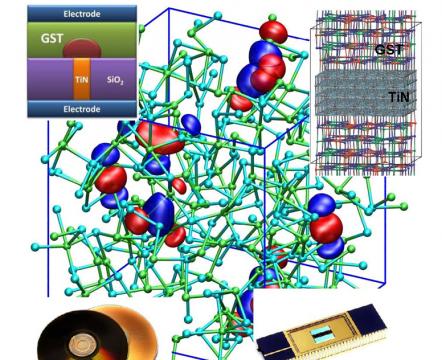PhD in Materials Science and Nanotechnology

The PhD program in Materials Science and Nanotechnology, within the Doctoral School of the University of Milano - Bicocca, aims at preparing students to both experimental and theoretical research, of fundamental, applied or industrial character, in those subfields of Physics and Chemistry which are the foundation of Materials Science, and of the corresponding technological applications. The general research framework is highly interdisciplinary, ranging from chemistry to engineering, from physics to biology and (nano)medicine.
The activities of the program are based on: (1) supervised research at the Materials Science Department, (2) a minimum of six months spent abroad in foreign universities or laboratories, (3) courses, schools and seminars, (4) interaction with leading industrial companies. The latter includes actual research in collaboration with industries offering PhD scholarships to pursue our program. Within the CORIMAV consortium established in 2001, for instance, Pirelli has constantly granted scholarships (up to 4 per year) to our program.
The doctorate is fully inserted into an international framework, and it is partner (and founder) of the European doctorate in Physics and Chemistry of Advanced Materials (PCAM) which includes 14 European universities (http://www.pcam-doctorate.eu).
Materials Science and Nanotechnology lay at the very center of technological innovation. We are talking about a strategic area of knowledge attracting huge investments not only from Universities but also from governments and private industries. Considering this framework and that this doctorate program forms young researchers with technical and scientific skills at the very state of the art, trained to work in a fully international environment, it does not come as a surprise that our doctors find jobs within high-technology companies both in the Lombardy region and outside. This is made even simpler by the direct involvement of some of them through direct financing of scholarships.
Scientific Production
PhD students in Materials Science and Nanotechnology demonstrate on average high scientific productivity accompanied by excellent editorial collocation (average Impact Factor IF: 7.5), as demonstrated by the reported figure. Data refer to the last 5 completed cycles and are extracted from IRIS-BOA, the institutional repository that collects, stores and disseminates the scientific output of the University of Milan - Bicocca.

Information and Activities - Active Cycles
There are presently 53 active PhD students (cycle 39, 40, and 41), all of whom are benefiting from a PhD grant.
All students should read the Vademecum provided by the University Doctoral School, and the specific Guidelines of the PhD Course in Materials Science and Nanotechnology
All PhD students at the end of both their first and second year are required to expose their research activity in the presence of a hearing Committee.
Didactic activities are managed through the e-learning page of the PhD Course.
Contacts
Director: Prof. Francesco Montalenti
Deputy Director: Prof. Cristiana Di Valentin
Doctorate School Sector: dottorati@unimib.it